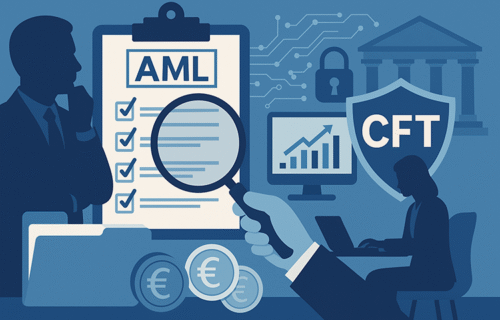A new Deloitte study assessing Europe’s financial sector readiness for the EU’s updated Anti-Money Laundering and Countering the Financing of Terrorism (AML/CFT) framework reveals a cautious optimism tempered by significant implementation challenges. The Navigating the EU AML/CFT Landscape 2025 report surveyed 103 financial institutions across 20 countries, offering an early look at how banks, insurers, and investment firms are preparing for the sweeping regulatory overhaul.
According to Deloitte, 84% of institutions believe the new AML/CFT Package will strengthen the fight against financial crime. However, 74% express concern about its operational impact, particularly the expanded supervisory role of the new EU Anti-Money Laundering Authority (AMLA), which will oversee implementation from July 2027.
The report highlights that most institutions are still in the early stages of preparation. About 84% have begun internal work, but the majority are either defining their approach or outlining basic strategies. Only a small proportion have detailed project plans. Banks are generally more advanced than insurers or fintech firms, while the second line of defense (compliance and risk management teams) leads most implementation efforts.
Despite this, confidence in resources remains high: 94% of respondents believe they have the capacity to meet compliance obligations, and 81% say they understand the new framework. Yet, one-third of organizations admit difficulty staying current with evolving technical standards and EU guidance ahead of the 2027 deadline.
The most significant operational gaps identified include client data management, innovation, and Know Your Customer (KYC) processes. Over half of respondents foresee moderate to major challenges in updating and maintaining client data, while 56% cite innovation shortfalls, especially in deploying advanced technologies such as artificial intelligence in compliance systems. Banks report larger compliance gaps than insurers, and smaller firms tend to feel more confident in their existing frameworks.
The AML/CFT Package, approved in June 2024, aims to unify financial crime controls across the EU. It introduces a directly applicable Anti-Money Laundering Regulation (AMLR) and establishes AMLA as a central supervisory authority to harmonize enforcement. It also mandates tighter coordination among Financial Intelligence Units (FIUs), with 85% of survey participants agreeing these changes will improve the effectiveness of suspicious transaction reporting.
Deloitte’s findings suggest that while the EU’s financial institutions broadly support the reforms, success will depend on execution and collaboration. As AMLA prepares to publish binding technical standards and guidance through 2026 and 2027, institutions face a narrowing window to align systems, governance, and data practices with the new framework.
The report concludes that the EU’s AML/CFT transformation represents both a compliance challenge and a strategic opportunity. Financial institutions that invest early in automation, data quality, and cross-border coordination will be better positioned to meet rising regulatory expectations — and to reinforce public trust in the integrity of Europe’s financial system.
Source: Deloitte
